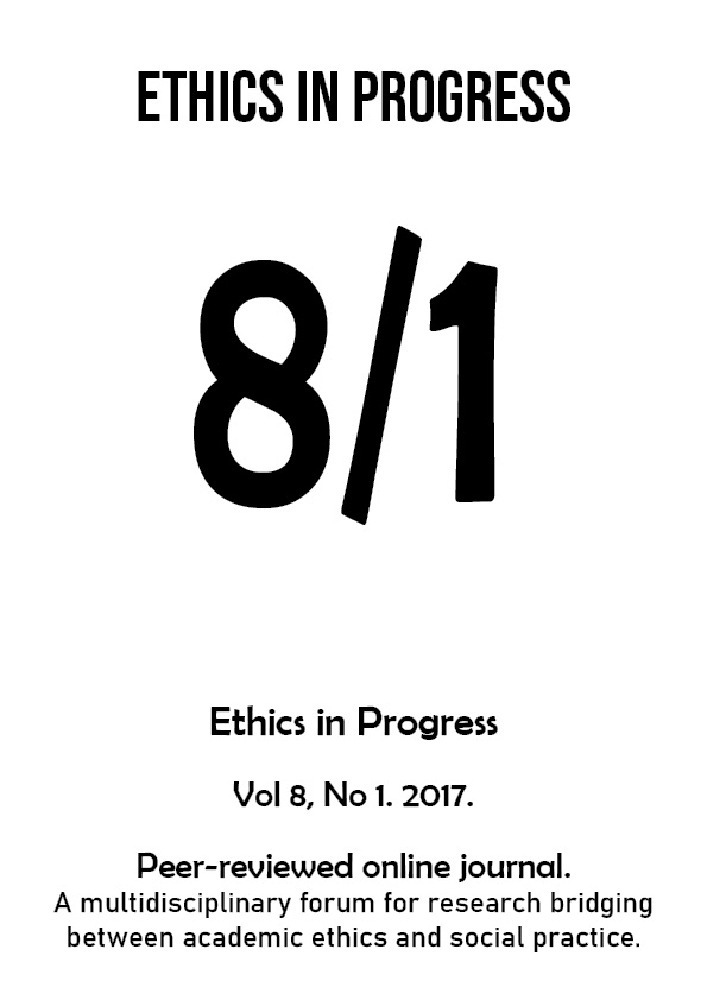Abstract
We always live in the present and we always pass through the present, even if we constantly reach out towards the future and towards the past. We move towards an effort of shaping the future and towards an effort of comprehending the past. Our experience of time flows into a relentless stream that inexorably points towards. This entails that the way we experience time is inescapably interwoven with a necessity of giving a direction to this movement towards. Such a necessity brings to light two pivotal questions: how to describe such a relentless movement forwards? Which forces can we rely on to drive our existence towards? This research aims at pinpointing such forces and, in so doing, outlining a phenomenological picture of our multilayer experience of time.References
Arendt, H. 1958. The Human Condition. Chicago: University of Chicago Press.
Arendt, H. 1968a. Truth and Politics. In Arendt, Between Past and Future: Eight Exercises in Political Thought. New York: Viking Press.
Arendt, H. 1968b. On Humanity in Dark Times: Thoughts about Lessing. In Arendt, Men in Dark Times. New York: Harvest Book, Harcourt Brace & Company.
Arendt, H. 1982. Lectures on Kant’s Political Philosophy. Chicago: The University of Chicago.
Arendt, H. 1994. Essays in Understanding, 1930-1954: Formation, Exile, and Totalitarianism. New York: Schocken Books.
Bergson, H. 1907. L’Évolution créatrice. Paris: Fe lix Alcan.
Borgna, E. 2015. Il tempo e la vita. Milano: Feltrinelli.
De Bono, E. 1990. Lateral Thinking. A Textbook of Creativity. London: Penguin Books.
De Bono, E. 1993. Serious Creativity: Using the Power of Lateral Thinking to Create New Ideas. London: Harper Collins.
De Warren, N. 2009. Husserl and the Promise of Time: Subjectivity in Trascendental Phenomenology. Cambridge: Cambridge University Press.
Hartmann, N. 1962. Die Struktur des ethischen Phänomens. Phänomenologie der Sitten. Berlin: De Gruyter.
Husserl, E. 1969. Zur Phänomenologie des inneren Zeitbewusstseins (1893-1917), ed. by R. Boehm. Den Haag: Martinus Nijhoff.
Husserl, E. 1976. Ideen zu einer reinen Phänomenologie und phänomenologischen Philosophie. Erstes Buch: Allgemeine Einführungen in die reine Phänomenologie. Den Haag: Martinus Nijhoff.
Husserl, E. 2015. Phänomenologie und Erkenntnistheorie, Milano: BUR.
Ingarden, R. 1968. Briefe an Roman Ingarden. Mit Erläuterungen und Erinnerungen an Husserl. Den Haag: Martinus Nijhoff.
Minkowski, E. 1970. Lived Time: Phenomenological and Psychopathological Studies. Evanston: Northwestern University Press.
Minkowski, E. 1997. La Schizophrénie, Paris: Editions Payot & Rivages. Scheler, M. 1914-1916. Ordo amoris, GW X (1957, 2004). Schriften aus dem Nachlaß, Bd. 1: Zur Ethik und Erkenntnislehre.
Scheler, M. 1973. Formalism in Ethics and Non-formal Ethics of Values. A New Attempt Toward the Foundation of an Ethical Personalism, tr. by M. S. Frings & R. L. Funk. Evanston: Northwestern University Press. German: Der Formalismus in der Ethik und die materiale Wertethik (1913/16; 1927), GW II (1954, 2009).
Scheler, M. 2010. Repentance and Rebirth. In Id. The Eternal in Man, tr. by B. Noble. New Jersey: Transaction Publishers, 33–65. German: Reue und Wiedergeburt (1917), GW V (1954, 2000): Vom Ewigen im Menschen (1921).
Smith, A. 1759. The Theory of Moral Sentiments. London: A. Millar.Life’s Forces That Sustain and Drive Our Existence Towards 26
Spiegelberg, H. 1986. Steppingstones. Toward an Ethics for Fellow Existers. Essays 1944-1983, Dordrecht: Martinus Nijhoff.
Weinrich, H. 2004. Knappe Zeit. Kunst und Ökonomie des befristeten Lebens. Munchen: Beck.




